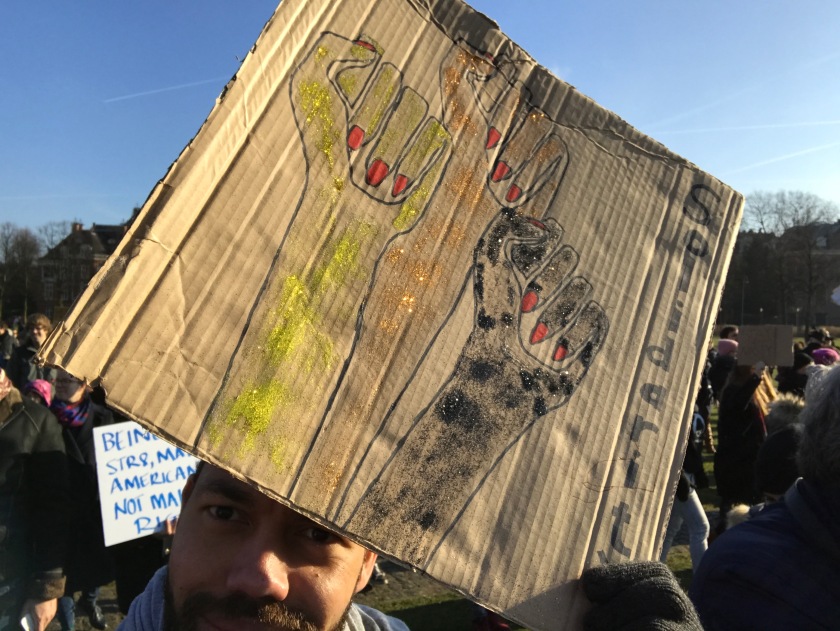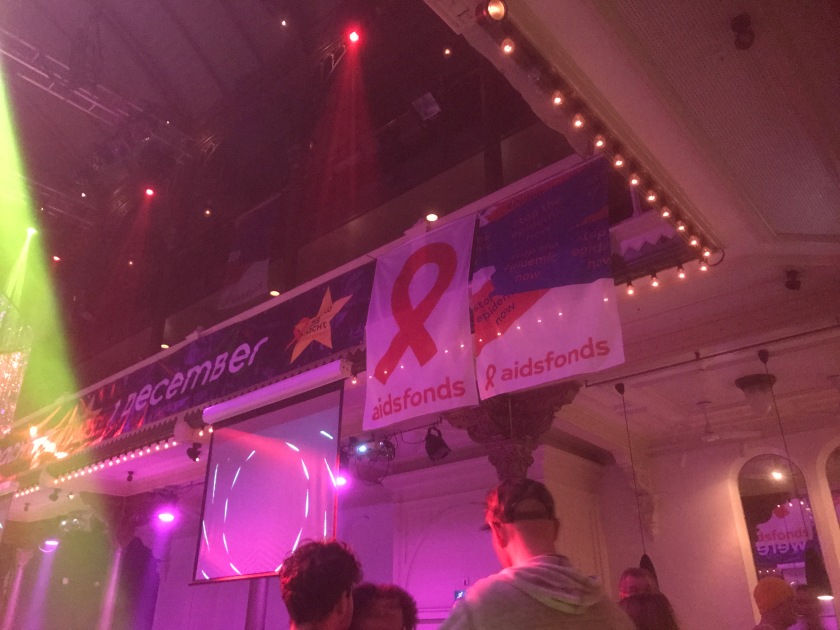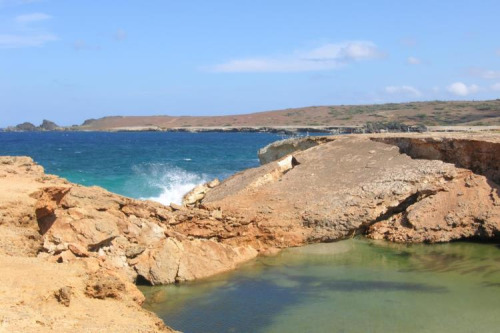
A few friends and I spend a nice Friday evening making signs for the women march that took place in cities all over the world on Saturday, including the one I live in, Amsterdam. I was surprised by the large turn out. This is the first time I have seen such a world wide backlash agains a US president. Despite there being a lot of criticism of white women’s intention, I think that the protest yesterday, at least in Amsterdam, was diverse (perhaps not enough), and well intended. Most of the people holding signs protesting for ALL women and not just white women were actually white women. What disappointed me was the lack of men in my own circle of friends that did not attend the protest. In the end this protest was not just agains the misogyny, sexism, racism and anti-immigration stance of Donal Trump, but it was agains the type of rhetoric that we have been hearing in many European countries such as The Netherlands, France and Austria to name a few. At some point, we, those who do not agree with these far-right nationalist views have to take a stand. We have to come out for what we believe in. And we cannot do this alone. We need our allies. As a person of color, I stress that we should be mindful of including our white allies in this resistance. People of all colors, genders, and social strata in between should stand together. Together we are stronger.








